Latin
Head of Department: Mr J Gedye – jdg@barneyschool.org.uk
Information
This GCSE course maintains natural progression from the study of the subject in Years 7-9, with a developed focus on the precise knowledge of the grammar and syntax involved, as well as an ability to provide a reasoned and personal response to text studied in the original. Students will increase their vocabulary and grammatical skills in unseen translation and comprehension, and will have the opportunity to translate into Latin for the first time. The language element of the course comprises 50% of the GCSE, and students will be provided with a specified vocabulary list; any word not on this list will be glossed.
Course/Examination Board: GCSE OCR J281
Specification at a glance and your route through the syllabus
Unit 1: Language (100 marks, 50% of GCSE)
A one-and-half-hour written paper
Candidates will have to:
Translate a passage of unseen Latin into English
Answer comprehension questions based on a passage of unseen Latin, and
EITHER:
Translate short sentences into Latin, using a vocabulary drawn from a restricted vocabulary list
OR:
Recognise, analyse and explain features of grammar and syntax
Unit 2-3: Verse Literature/Prose Literature/Literature and Culture (each unit is worth 50 marks 25% of GCSE)
Candidates will study two modules drawn from a choice of two prose and two verse texts. In each case, students will prepare one or more passages of Latin from the original as a ‘set text’. As well as translating it in class, they will learn to provide personal responses to the author and the writing, and to assess the impact of the passage on both an ancient and modern readership.
Alternatively, candidates may study in place of one of the above modules, Literature and Culture. Here, candidates study two topics on Roman civilisation using a collection of prescribed sources and will answer questions in English on these.
What Latin can do for you
Universities and employers hold the study of Latin in high regard as the subject requires students to be highly analytical and literate. All students studying Latin post-Year 9 are entitled to join us on our biennial trip to sites of Classical antiquity. The department will be visiting Italy at Easter 2019.

